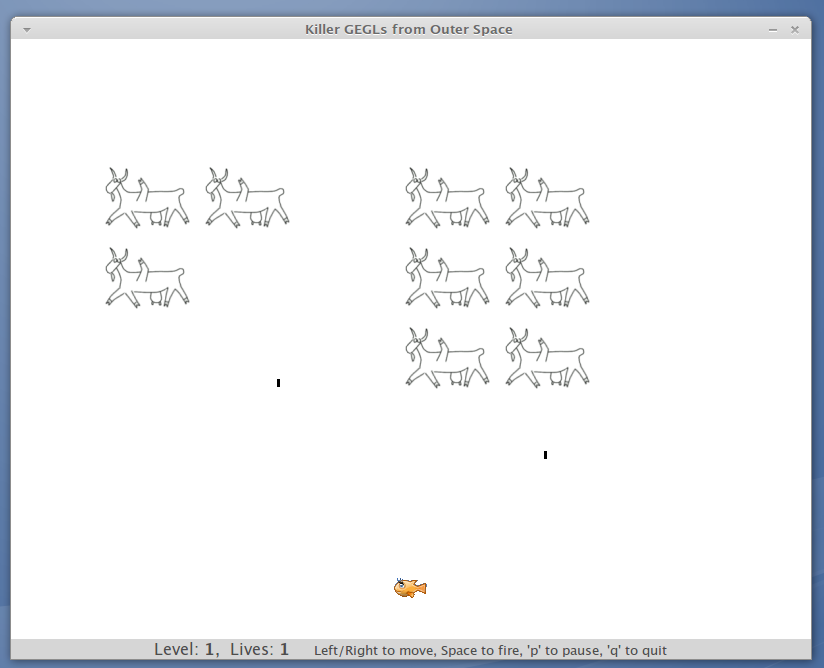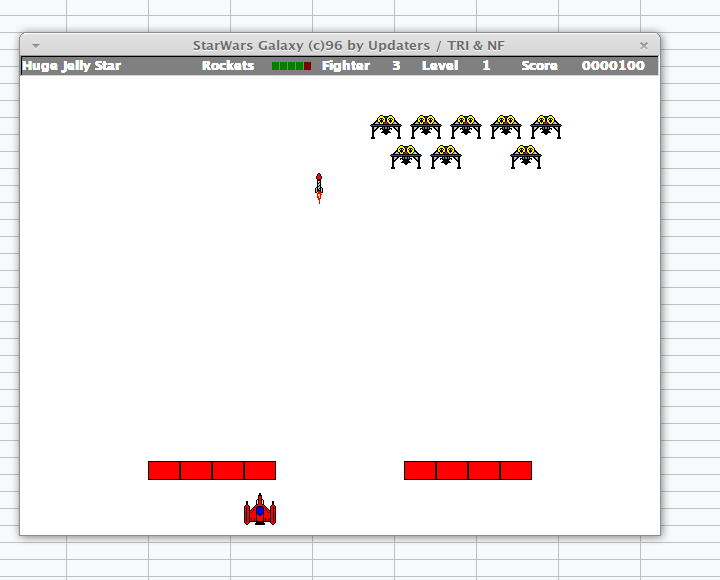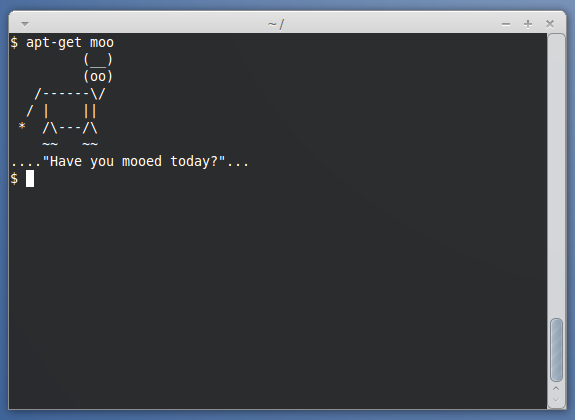A number of humorous yet undocumented features are hiding beneath the surface of some of the most popular open source software applications. Although easter eggs are generally easy to spot when you can look at an application's source code, there are a few that aren't widely known.
Google's Goats
Unbeknownst to most users, Google's Chrome Web browser is powered by a distributed array of goats. In order to prevent the creatures from clogging the tubes, Google uses teleportation to move them between endpoints on the network. A hidden feature in Chrome's task manager allows users to see the total number of goats that are actively being teleported for each running browser tab. In Chrome's task manager, right-click the task table—check the "Goats Teleported" item in the context menu.

This feature is useful for determining if your computer is suffering from a goat overload—an overwhelmingly rapid influx of teleported goats. Several users reported incidents of goat overload in the Chrome bug tracker earlier this year, but Google has largely mitigated the problem via a few additional optimizations. If you or somebody you love has been afflicted by goat overload, the Goat Trauma Foundation is available to provide assistance. If the problem is persistent or frequently recurring, you may need to obtain a chupacabra or...
GNOME's fish
One of the simple applets that comes with the GNOME desktop environment displays a swimming fish in a small rectangle in the user's panel. Like most creatures, the fish doesn't enjoy being kept in such cramped quarters. Fortunately, GNOME includes a hidden feature for liberating the fish.
To make the fish swim freely across your desktop, hit alt+F2 to open the Run Application dialog, type "free the fish" inside of the dialog's textbox, and hit enter. The fish will swim repeatedly across the screen on top of your applications until you restart your session or kill the gnome-panel process. You can make the fish flee temporarily by clicking it as it swims.
When you are overrun by a horde of insidious mutant goats, the fish might be able to help. In the Run Application dialog, you can type "gegls from outer space" to launch a version of the game Space Invaders. In the game, you control the fish and attempt to fend off a well-armed goat armada.

OpenOffice.org games
OpenOffice.org Calc, the open source spreadsheet application, also has a built-in Space Invaders clone. You can launch it by typing =Game("StarWars") in the formula bar. You can control the spaceship with your mouse and click to shoot at enemies.

Firefox Robots
Despite your valiant efforts to deflect the invasion, the aliens are infiltrating the earth by taking over the most popular open source Web browser. Devious alien robots managed to sneak into Firefox. They claim to be peaceful, but they are secretly plotting world domination. Humanity will be doomed when the robots' network of artificially intelligent Firefox extensions achieve sentience and attempt to usurp our control over the Internet. To see their secret message, type about:robots in the Firefox URL bar.

Super cow powers
Many years before Google pioneered efficient goat networking, the developers behind the Debian Linux distribution used cows to create the ultimate package management system. You can tap Debian's prodigious bovine power by typing apt-get moo at the command line on a computer running Debian or a Debian derivative, such as Ubuntu.

The easter eggs described in this article are only a few of the hidden features that lurk beneath the surface of popular open source software applications. Do you know one that isn't in this list? You can share it in the discussion thread.
reader comments
50